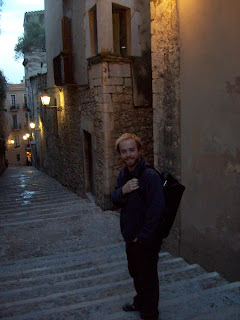Founders Hall is not Founders Hall
It is difficult to miss the large wooden sign planted in front of Founders Hall depicting a sketch of the Hall following renovations. Standing there, with this historic building in the background, the problematically minded may wonder if the ‘New Founders Hall’ is still Founders Hall at all. This question of identity seems simple enough; still any uncertainty is not only the lonely ponderings of misguided metaphysicians.
What is it about the identity of this building which needs to be preserved so the renovated building is still Founders Hall? Intuitively, there is a problem with constructing a new building across campus and claiming it is also Founders Hall. Therefore, it seems there must be something inherent in Founders Hall, some essence, which needs to be preserved.
Those who are generously funding renovations claim it is necessary to preserve the clock tower. Yet, why not preserve the door frames, or decorate the renovated building with pictures of the original? Granted, in an economic sense, if the funding for renovations requires the original light bulbs to be preserved, then it seems prudent to comply.
It is often the seemingly inconsequential questions which stimulate the harshest debate in philosophical circles. While these are often ignored in everyday activity, there are always underlying philosophical quandaries. These occasionally rise to the surface of discussion and influence important actions in very real ways. The age-old trouble of identity, in this instance, pertains especially well to the renovation of Founders Hall.
The classic illustration of this problem is known as the Paradox of Theseus’ Ship. The story begins in a major port of ancient Athens with a ship owned by a merchant named Theseus. His ship has sailed across the entire known world and weathered many nights on the rough seas. Upon the death of Theseus, his ship is inherited by his son. At this time, old rotting boards are replaced with new boards and the sails are patched before Theseus’ son sets sail.
Over the following years, as Theseus’ son persists in the family trade, the rudder wears out and needs to be replaced; the oars are all discarded and working replicas are provided. Even the original mast cracks in a violent storm and is also replaced. Eventually, every original piece of the ship has been substituted for new materials. But is this still the same ship? If not, when did this ship cease to be Theseus’ ship?
Following this thought, if Founders Hall was leveled to the ground and an exact replica built in its place, could this building still be Founders Hall? This is a tricky distinction. However, buildings destroyed by fire or warfare are often rebuilt in nearly exact likeness and name with no questions asked.
Pushing this idea, imagine the materials from the original Founders Hall are all recycled and used to build a replica of Noah’s Ark. Is the ark then also Founders Hall? Answering yes, and assuming the ‘essence’ of Founders Hall is inherent in the plywood, bricks and mortar sounds wrong.
It seems reasonable to assume portions of the Hall are being preserved, not because of some belief that identity is inherent in the bricks, but because they are prominent features of the building. The clock tower is what identifies the original and the renovated as one in the same.
Keeping in mind the story of Theseus’ ship though, how is a ‘prominent feature’ determined? How many original bricks need to be reused for the identity of Founders Hall to persist? If the conclusion that identity is not inherent in physical material is correct, then why preserve any of the building at all? At some point, it becomes unreasonable to claim an entirely new entity is identical to the original.
At the very least, these are interesting questions to ask. The true answer, most likely, needs to involve the implications of emotional attachments to Founders Hall. In the end, the actual mental procedure may be further complicated by other matters or even irrelevant. However, it is clear this is an important and intricate discussion which has very real implications. Those funding renovations for Founders Hall would probably agree.
ryan hamilton
-taken from Feb. 28th Juniatian (omitting editor's corrections. i didn't really approve.)
Subscribe to:
Post Comments (Atom)

No comments:
Post a Comment